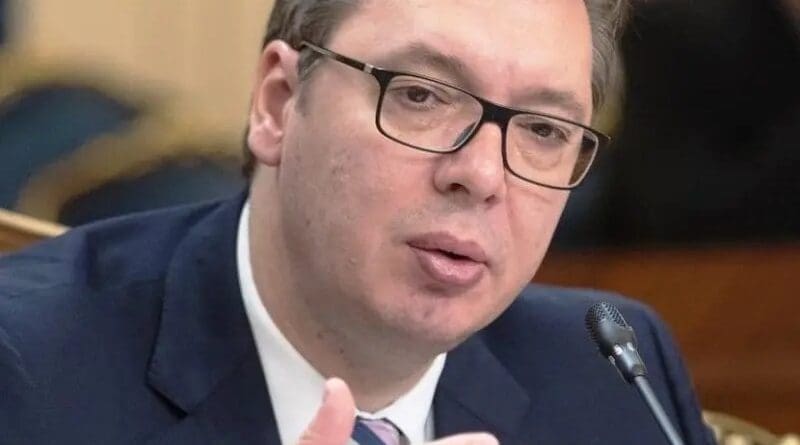Serbia: President Vucic Denies Reaching Deal With Kosovo in US
Aleksandar Vucic on Wednesday brushed aside reports that he hatched a major political deal with his Kosovo counterpart in Washington, saying their talks were confined to lower-level practical issues.
By Milica Stojanovic
Serbian President Aleksandar Vucic on Wednesday denied reports that he had brokered a “great deal” with the President of Kosovo during their overlapping visits to the United States.
During his visit, Vucic met US national security adviser Robert O’Brien, President Donald Trump’s special aide and son-in-law Jared Kushner and the US special envoy for the Belgrade-Pristina dialogue Richard Grenell. But he also met Kosovo President Hashim Thaci, who was also in the US, on March 2.
“During the last couple of days there was a lot of untruthful news, fake news, that great deals were made, that a plan has been made, that everything is already known. No, it has not been discussed and nothing like that exists,” Vucic said on Wednesday.
He said his talks with Thaci had been limited to bread-and-butter issues. “We talked about the topics for our regional gatherings: how to open up a faster flow of people, goods, services, capital, airlines, railway lines”, he added, and repeated that there will be no substantive negotiations with Kosovo until it totally scraps the tariffs it imposed on goods from Serbia.
President Thaci asked to address the Kosovo parliament about this meeting, which did not allow him to, saying he had sought permission to address MPs too late.
Thaci announced that he will hold a press conference later on Wednesday after Speaker Vjosa Osmani rejected his request to hold a session of the Assembly.
Media reported that the new Prime Minister, Albin Kurti, a vocal opponent of Thaci’s handling of relations with Serbia, had meanwhile urged Thaci to “coordinate” foreign policy with the government.
“The representation of Kosovo in the international arena should be dignified and we can achieve this by being harmonised in our positions which, apart from success, would also guarantee economic development and state and national security,” Kurti wrote in a letter to President Thaci.
The media outlet Koha ditore reported that Thaci has not given a precise response to an invitation to meet Kurti, but has said that if he is unable to report to parliament, he will invite all political party leaders to a meeting.
Koha said the aim of the meeting was “to move the dialogue from Brussels to Washington, as well as to push the parties to resume the process”.
The visits by Vucic and Thaci to the US came shortly after Kurti said Kosovo would only partially lift import tariffs on raw materials from Serbia and Bosnia.
The new measure would take effect on March 15, followed by a full lifting of the tariff for 90 days from April 1 – but only “if the Serbian side demonstrates meaningful commitment in stopping its unfriendly campaign”. If Serbia failed to do so, reciprocal measures would be re-introduced.
The US envoy to the Kosovo-Serbia dialogue, Grenell criticized this decision, as did the Serbian President but also some local leaders in Kosovo. Serbia meanwhile announced on March 3 that Sierra Leone had withdrawn its recognition of Kosovo
The EU, on the other hand, welcomed Kurti’s proposal, if only as a start. “We welcome this announcement as the first step and look forward to seeing more details”, the office of EU foreign policy chief Josep Borrell said.
“This step could have a positive effect on reestablishment of regional trade and offering an opening for renewal of dialogue between Belgrade and Pristina facilitated by the European Union,” it added.

